When is grief political? When is our anger warranted?
First, see these photos of public outcry and see the difference. Some show protest. Some show violence. They are not the same.
When we see public grief and anger, we must listen and ask:
What is the source of lament?
What is being grieved?
And when is it harmful?
In these photos, aren’t they all just freely expressing their anger?
To the last question: No. Here’s why.
•
There is a clear distinction between transformative protests and hostile insurrections.
We must acknowledge this:
Throughout history, the oppressed were disallowed their grief.
One of the main tools of the oppressor is to stamp out the grief of the oppressed, remove their monuments and memorials, to force unmarked graves, to bury culture and language—
to ensure we would not rise up.
This suppression then was inherited in our DNA.
But grief cannot be contained.
It must and will be named.
•
•
Historically our grief was conditioned out of us. The oppressor feared that their subjugated, out of their pain, would fight back.
Grief essentially became banned, colonized, assimilated. And so, too many of us were indoctrinated into viewing angry grief as “wrong.” We were socially trained into seeing protest as aberrant, impolite, deviant.
It’s not all our fault:
The oppressed were suppressed, and the oppressor suppressed their own grief to keep conquering.
We inherited this story.
Yet still, oppressed people rose up. Grieved and protested in song, dance, art, story, spirituals.
Grief finds its way to honor the dead, to reclaim stolen dignity.
When there is injustice,
grief + solidarity =
transformation.
So when you see anger on the street, what is true justice vs. a violent insurrection?
Here is the difference:
- Entitled anger seeks more of itself, only for itself, it moves to destroy.
- Empathic anger seeks more for all of us, it is communal, it moves to repair. ❤️🩹
•
I see empathic anger and it seems to burn violently.
But the difference? It’s a fire made warmth, a grief demanding a wrong be righted *for* us. It does not emerge from power, but from the abuse of power where tyranny ran free.
We survived by a grief we never asked for.
It is the fuel that kept us safe.
Our protest is birthed from grief. Not just an exercise in free speech. But for the right to speak at all. To preserve memory.
It says, “This hurts. And what chains me chains you too.”
•
So many mock those who protest, but every single one of us has always benefited from the very road paved by those before us, those who are fighting hard for humanity.
Fighting for our rights will always benefit everyone. None of us got here by settling for less.
•
I am always frustrated by those who are more offended by the wounded person being hurt than the actual pain that was caused.
To dismiss someone’s pain because their reaction is “too loud” is a deflection from accountability, repair, and real change.
If I am wounded but I must manage your reaction to my reaction, you only add injury to injury. If you are offended by my pain, you have not seen me—only yourself. Spend the energy to see and to repair, not to defend your harm, which only harms.
•
•
I’ll say it again:
When you see those moved in collective grief, permeated by anger, shouting, marching, singing, and shaking,
this is our necessary and ancient response when we know change must happen.
Listen to this grief.
It has been silenced
but can never be silenced for long. ❤️🩹
“There is no agony like bearing an untold story inside you.”
— Zora Neale Hurston, Dust Tracks on a Road
•
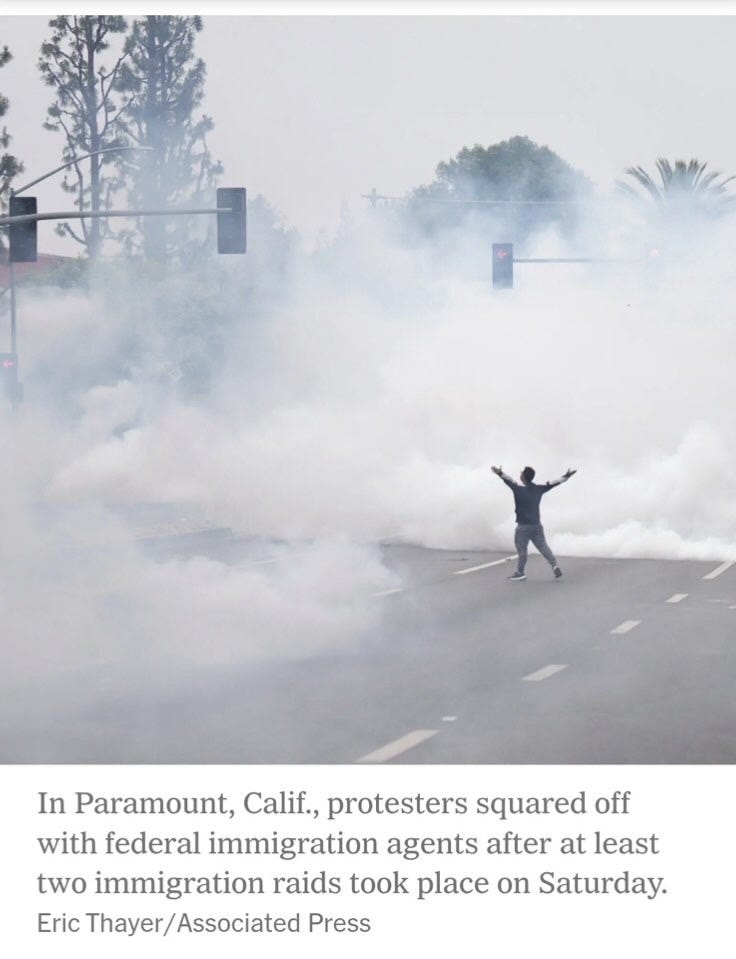
•
Again: When is grief political?
The answer is always. Especially when it is provoked by brutality and injustice. It demands safety for our body and The Body. Angry grief demands repair. Anything else is only entitlement.
I’ve heard too many times the anguished cries of parents holding children who met an unjust end. Violent injustice reaches back even into joyful memory, a cruel haunting. They demand justice, if anything, to repair the memory of the dead.
And—to fight for our future living. ❤️🩹
•
My continued hope
is to raise daughter and son
into the world we are fighting for,
for the liberation and humanity of all oppressed people; to speak clearly against bigotry and genocide; to know our dreams and wounds are connected at hip and heart; that they can trust I had planted the seed of a tree which they can one day sit under its shade.
I love you both,
you are my world,
which is why I clamor for a better one.
May my voice echo for you
not as chains, but wings.
•
“Oppressed people cannot remain oppressed forever. The yearning for freedom eventually manifests itself, and that is what has happened to the American Negro. Something within has reminded him of his birthright of freedom, and something without has reminded him that it can be gained.”
— Rev. Dr. Martin Luther King Jr., Letter from a Birmingham Jail, 1963
“Nations reel and stagger on their way; they make hideous mistakes; they commit frightful wrongs; they do great and beautiful things. And shall we not best guide humanity by telling the truth about all this, so far as the truth is ascertainable?”
— W.E.B. Du Bois, Black Reconstruction in America, 1935
Photo credits:
Asian Americans at a demonstration in Los Angeles against US involvement in the Vietnam war, circa 1971. Courtesy of UCLA Asian
American Studies Center
•
Trump supporters clash with police and security forces as they push barricades to storm the US
Capitol in Washington D.C on January 6, 2021. - Demonstrators breeched security and entered the Capitol as Congress debated the a 2020 presidential election Electoral Vote Certification.
(Photo by ROBERTO SCHMIDT / AFP) (Photo by
ROBERTO SCHMIDT/AFP via Getty Images)
•
Zach Roberts/NurPhoto/Getty Images
August 11th, 2017
White nationalists marching in Charlottesville and chanting neo-Nazi slogans ahead of a "Unite the Right" rally.
•
Crowd of protesters against the war in Vietnam gather in Pershing Square on March 26, 1966.
Los Angeles Herald Examiner

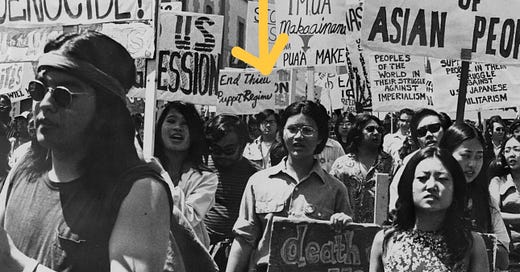



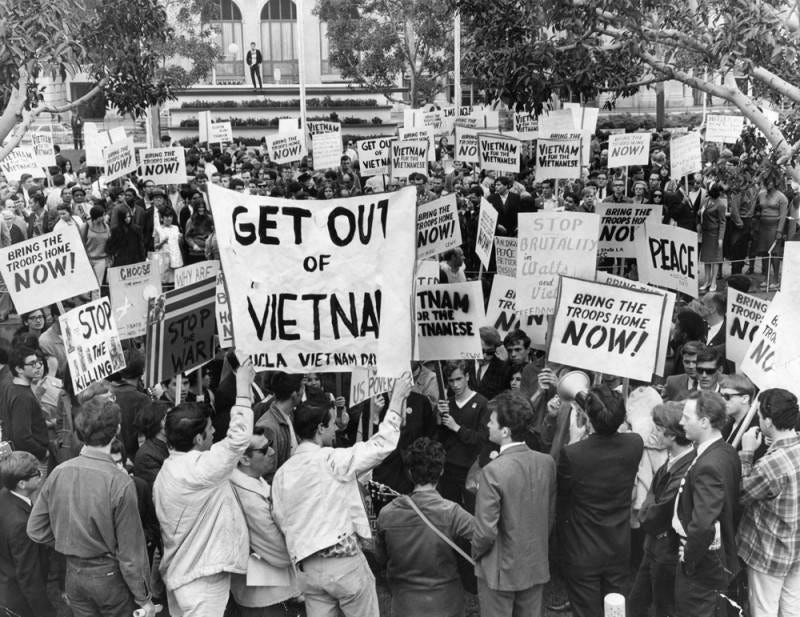
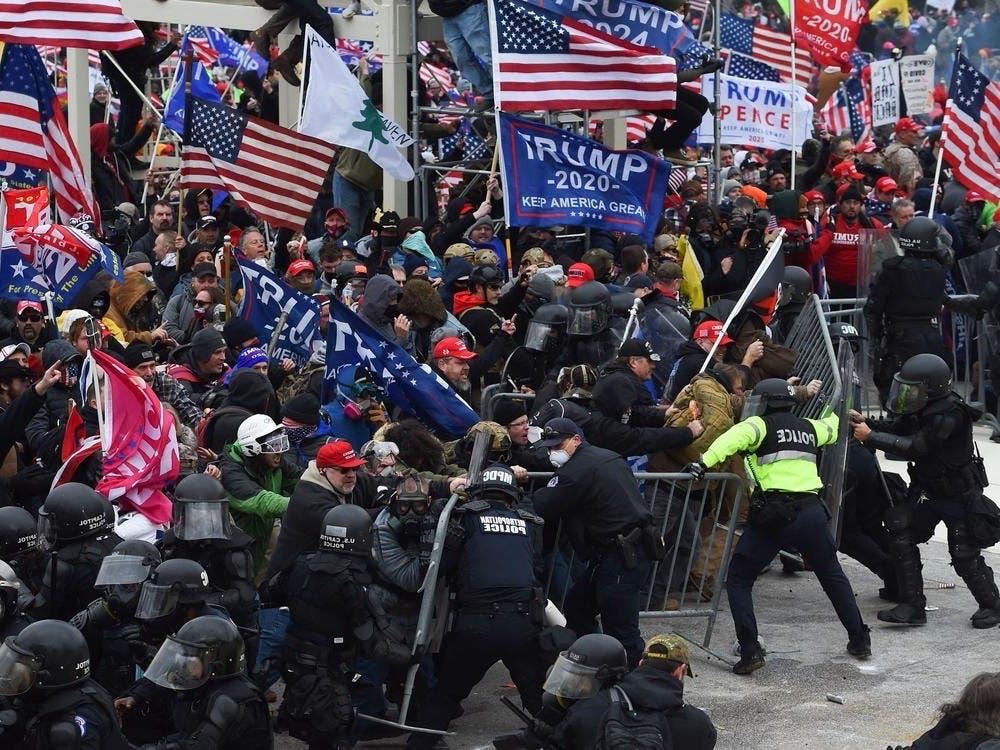
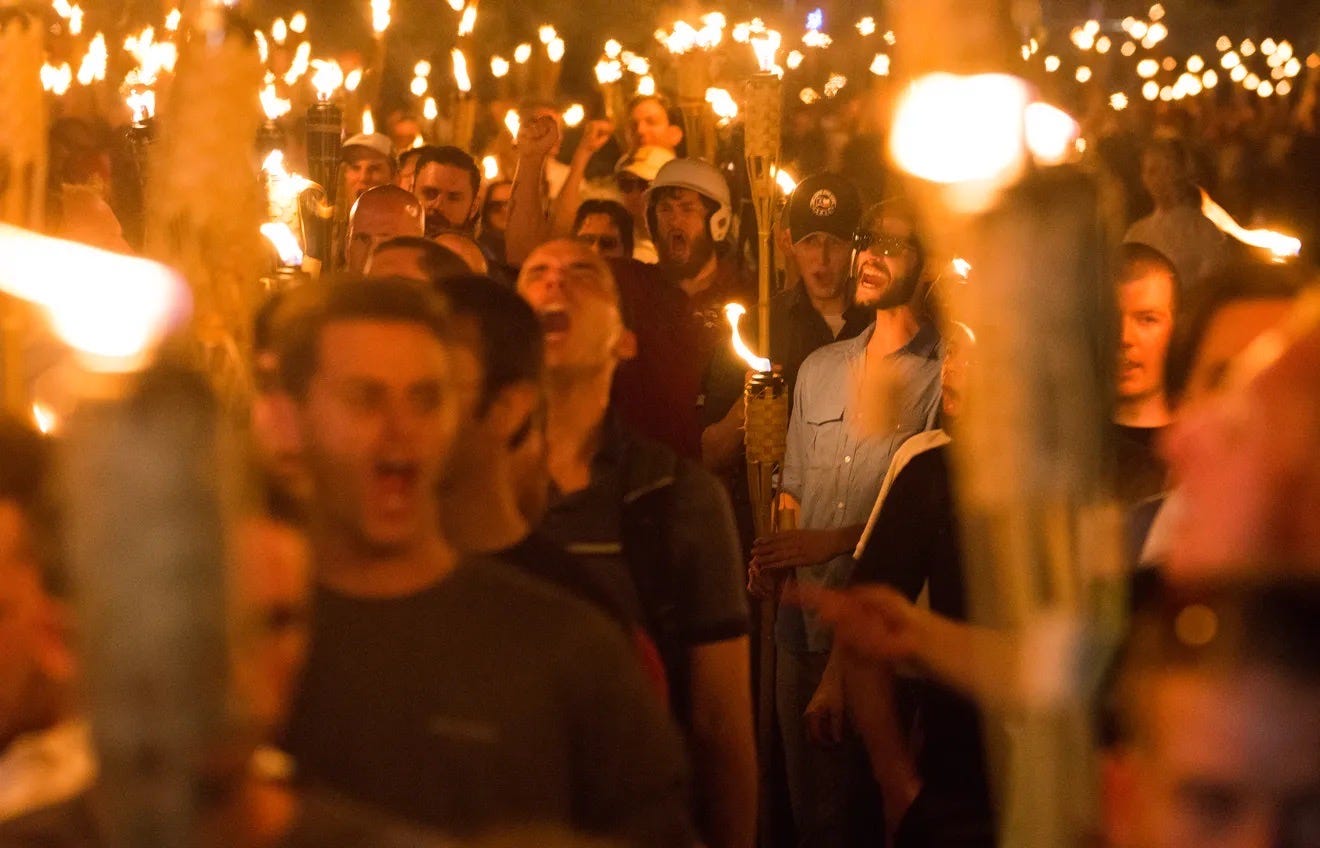
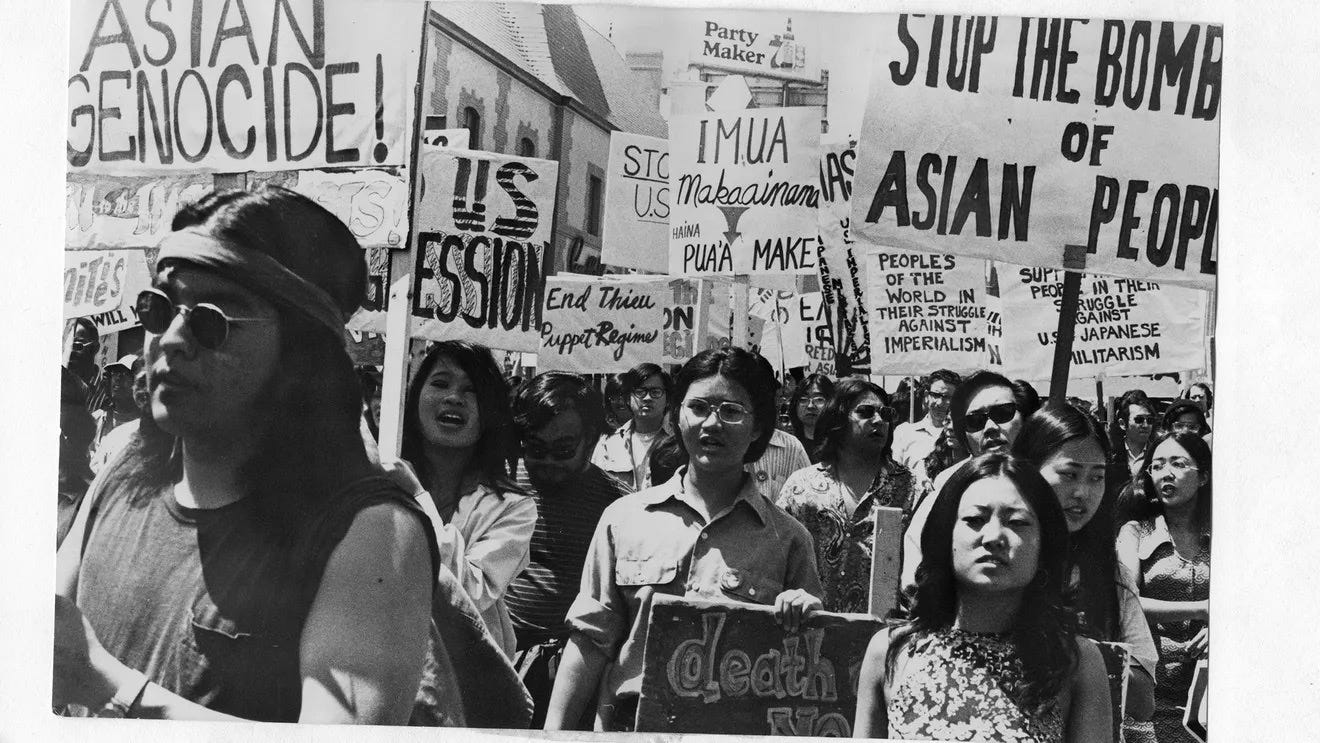
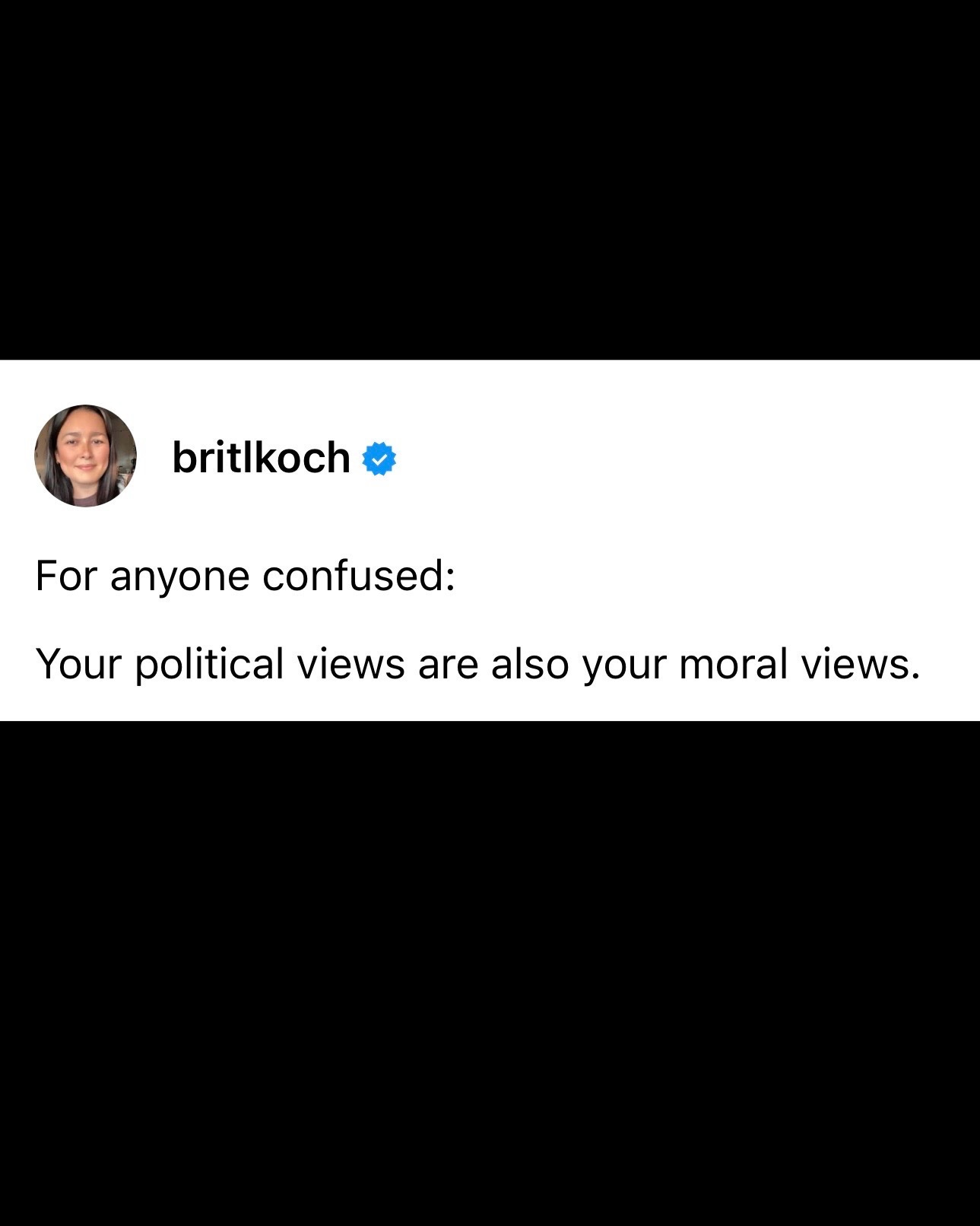
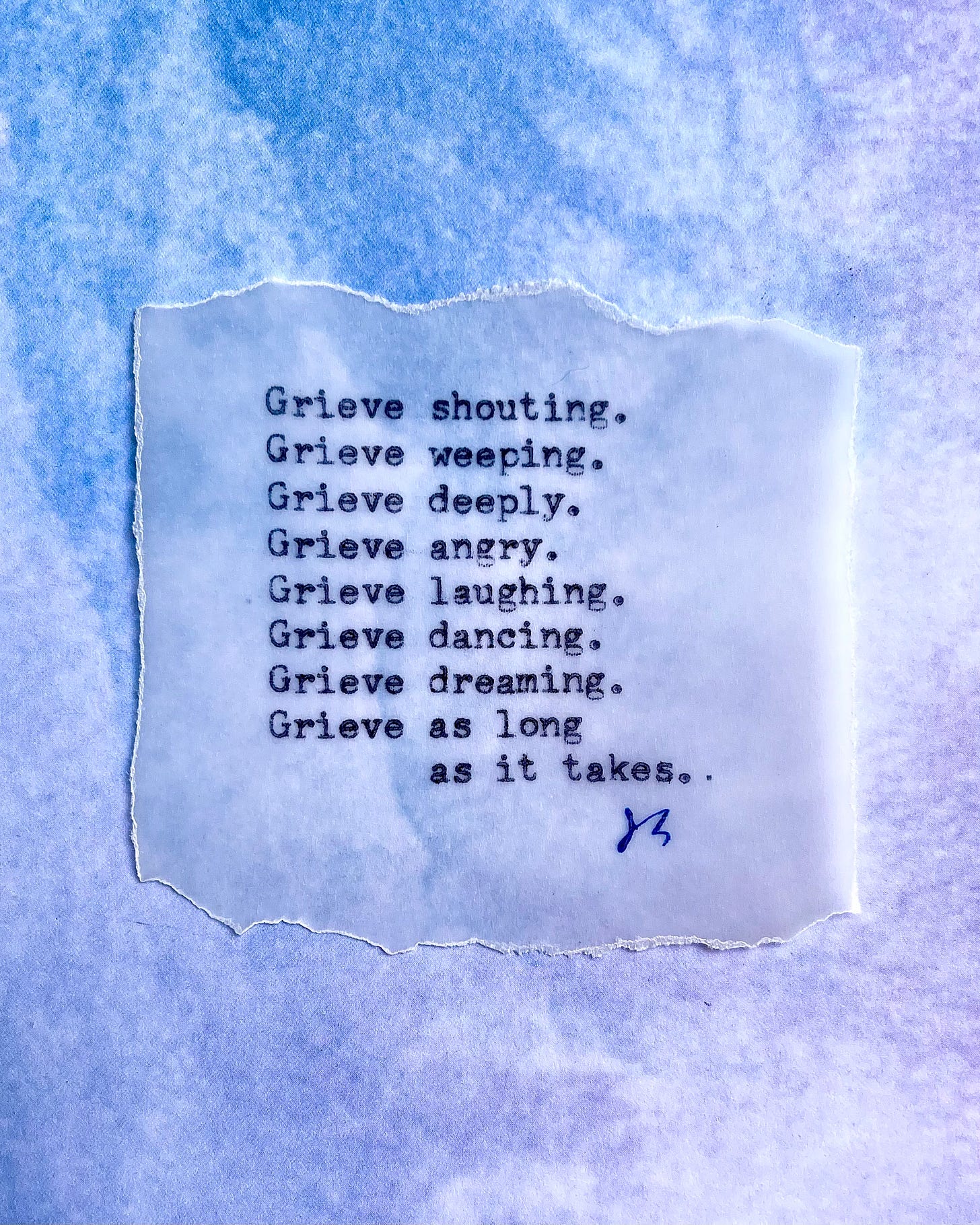
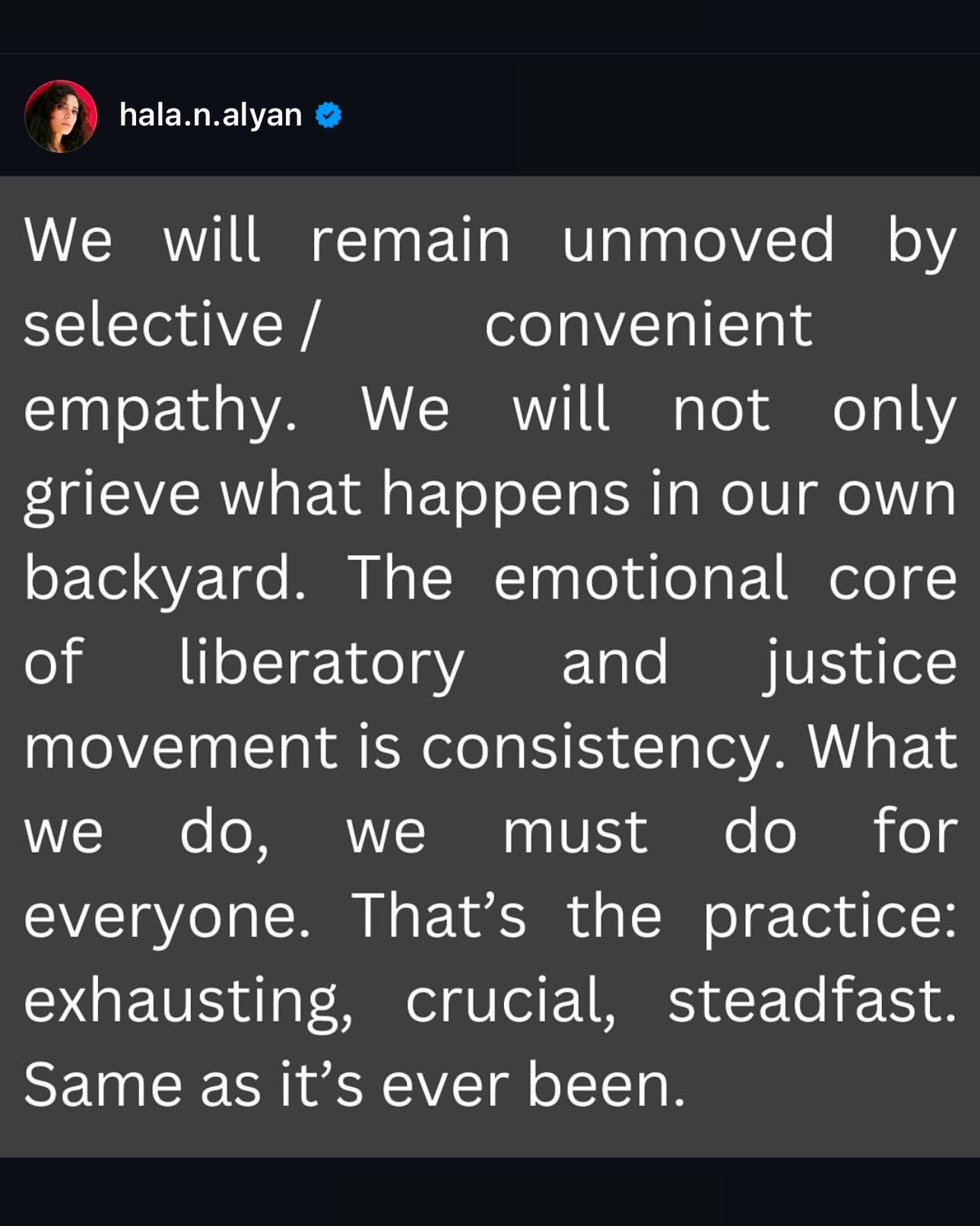
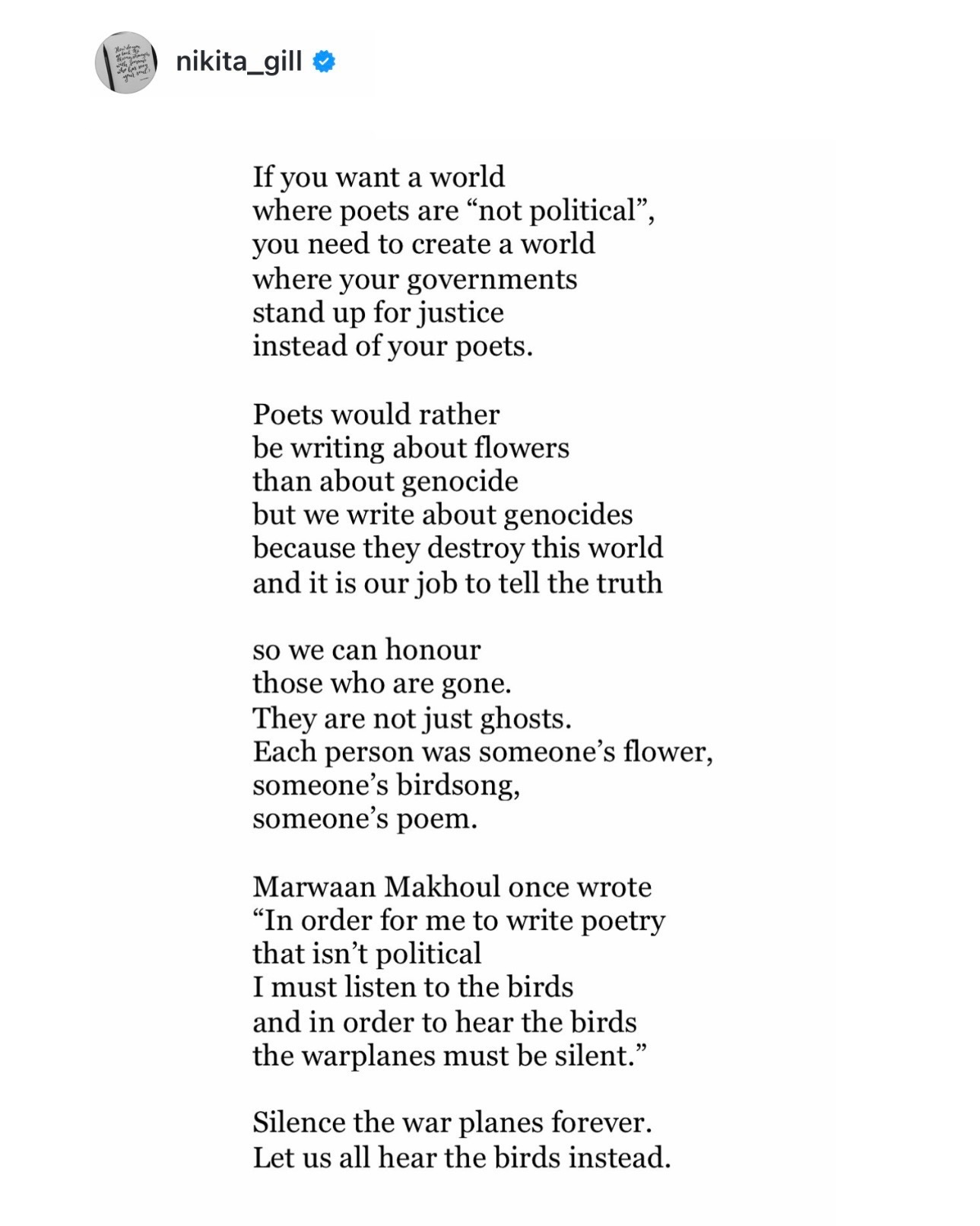
감사합니다. Thank you for this. As a nineteen year old, I often find myself bleary-eyed with tears and crippled with grief, loss, longing, and anger for others to see the humanity and dignity of every person that is so often strangled and neglected in our current political climate. I find myself wondering whether I could raise a family ten, fifteen years from now if this is the world they would be brought into, whether there will be a home to return to. Thank you, especially as a fellow Korean, for speaking the moral courage and compassion we so desperately need and inherently seek; you give me the muscular hope to keep caring, deeply, without expectation of return or recognition.